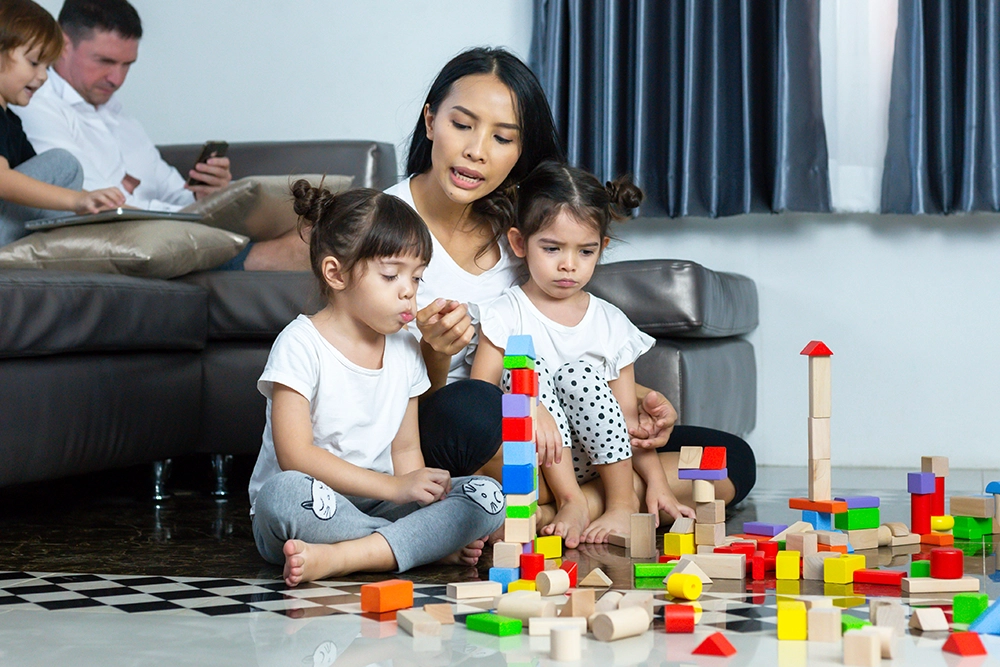It’s written to help you decide whether to go ahead or not. If you go ahead, it will help you to understand how the process works, what you need to do and when, and what your role will be.
Mediation is used for many different reasons. This information is about using mediation to try and come to an agreement about Education Health and Care (EHC) plan and EHC needs assessment decisions.
This guide covers some of the basic things to think about and tells you what happens during and after a mediation meeting. If you would like to know more, especially about the law, IPSEA has more detailed information.

Mediation is a discussion, led and supported by someone independent, impartial and non-judgmental. It aims to empower two parties who disagree with each other to work together to find a solution.
Discussions happen at a meeting, either in person or online. You can take someone along to support you. Someone from the local authority will be at the meeting and sometimes people from other organisations or services also go along too. This could be someone from your child’s school or college or a key professional who supports your child. If the mediation will include discussions about the health part of the EHC plan, it may also involve the local health authority. In Devon that is One Devon, the Integrated Care Board (ICB).
Parents and young people aged 16 and over have a right to mediation in certain situations.
Mediation is voluntary for you – you don’t have to go. Mediation is less formal than going to the SEND tribunal to appeal. It doesn’t cost anything for you to use and you don’t need to be represented by a solicitor or lawyer.
Important to know
![]() At it’s heart, SEND mediation is about getting the best outcomes for your child or young person. It’s sometimes easy for that to get lost if there are strong feelings and lots of disagreement. Make sure your child’s views are shared as part of the mediation. There is information about how to do that on our website, or you can contact the team at DIAS. We have children and young people’s workers who can work directly with your child or young person to get and share their views.
At it’s heart, SEND mediation is about getting the best outcomes for your child or young person. It’s sometimes easy for that to get lost if there are strong feelings and lots of disagreement. Make sure your child’s views are shared as part of the mediation. There is information about how to do that on our website, or you can contact the team at DIAS. We have children and young people’s workers who can work directly with your child or young person to get and share their views.
Mediation is specifically for parent carers and young people who disagree with decisions made about parts of the EHC plan process.
You can go to mediation about one or more parts of an EHC plan:
Unlike appealing to the SEND tribunal, you can go to mediation about just the health or social care parts of an EHC plan. There doesn’t have to be discussion about the education part as well.
You can go to mediation about a wide range of decisions, including those that are about where your child is educated (section I of an EHC plan) only. You can go to mediation if the local authority has:
Thinking about mediation
 If you want to appeal to the SEND tribunal, you should usually have at least thought about mediation before you register the appeal. You don’t have to go to mediation first, you just need to have thought about it.
If you want to appeal to the SEND tribunal, you should usually have at least thought about mediation before you register the appeal. You don’t have to go to mediation first, you just need to have thought about it.
You can go to mediation and then not appeal to the SEND Tribunal. Some parents come to an agreement with the local authority or health beard at mediation. Or they come to a compromise they are comfortable with, and don’t need to appeal. Some parents try mediation but decide that appealing to the SEND tribunal is something they do not want to do.
If your child is over 16, and they have the capacity to make the decision to go to mediation, then they have the right to do it. That means you can support them, but they are the person asking for and doing the mediation.
By law, the local authority and/or Integrated Care Board (ICB) cannot refuse to go to mediation if you, or your young person, ask for it. They cannot make you go to another type of meeting beforehand either.
It’s really important to involve your child or young person in the mediation if possible. Some young people go to the mediation meeting and talk about what they want and need. If your child or young person does not want to go, or they are not able to, then it’s still important to find out their views and share these at the meeting.
You can find out more about appealing to the SEND tribunal.
Deciding whether to go to mediation, or not
You, or your young person, are the only ones who can decide whether to go to mediation or not.
These are some of the things to consider:
Whatever you or your young person decide to do, you or they will need to call Global Mediation and talk to them about mediation. Global Mediation are the company that Devon County Council use for mediation. When you contact them, they will talk to you about mediation and what it means.
If you have decided to mediate
 If you decide to go ahead with mediation, you will need to tell Global Mediation what you want to discuss. You will also need to get in touch with your caseworker at the SEND Statutory Team and tell them you want to go to mediation and what you want to mediate about. If you want to mediate about the health part of the EHC plan, your caseworker should get in touch directly with the relevant staff at One Devon, the Integrated Care Board in Devon.
If you decide to go ahead with mediation, you will need to tell Global Mediation what you want to discuss. You will also need to get in touch with your caseworker at the SEND Statutory Team and tell them you want to go to mediation and what you want to mediate about. If you want to mediate about the health part of the EHC plan, your caseworker should get in touch directly with the relevant staff at One Devon, the Integrated Care Board in Devon.
A mediation meeting about the education or social care part of the EHC plan must be arranged within 30 days from when you tell the local authority you want to go to mediation. If the mediation is about the health part of the plan only, the Integrated Care Board has 30 days to arrange the meeting, starting from when the local authority tells the ICB what the mediation issues are.
If the mediation is not arranged within 30 days, then a mediation certificate can still be issued, and mediation can be arranged to take place after any appeal has been registered with the SEND tribunal.
If you decide not to mediate
Some parents don’t want to go to mediation but instead want to go straight to an appeal. If that is the case for you, when you contact Global Mediation, tell them you’ve decided not to try mediation. They will send you a mediation certificate. You will need that to register your appeal – you cannot register without it.
The mediation certificate should be sent to you within three working days of you saying you do not want to go to mediation. If you haven’t had the certificate within that time, check your junk email folder. If it’s not there, contact Global Mediation directly with your reference number.
Important to know
![]() If you want to register an appeal, you must contact Global Mediation within two months from the date of the letter from the local authority, giving their final written decision.
If you want to register an appeal, you must contact Global Mediation within two months from the date of the letter from the local authority, giving their final written decision.
You do not have to consider mediation at all if you only want to appeal about the place where your child goes to nursery, school or college (section I). However, if you are appealing section I only, you can still ask for mediation if you would like it.
You should be told at least five working days before the mediation meeting when and where it will be held. Most mediation meetings are online (virtual), but you can ask for, and should get, a face-to-face meeting if you want one.
Before the mediation meeting, the mediator will ask you for quite a bit of information. This is to help them decide:
The mediator will also try and get the views of your child or young person.
![]() Being well prepared for the meeting can really help. If you know what you want to say and you are clear about what you’re asking for and why, it will help you feel confident and stay focused.
Being well prepared for the meeting can really help. If you know what you want to say and you are clear about what you’re asking for and why, it will help you feel confident and stay focused.
Here are some tips for preparing well.
The aim of the mediation meeting is for there to be a discussion about the decisions you disagree about. Ideally, that discussion would lead to an agreement within the meeting itself. If there is an agreement, that may mean either:
Some mediation meetings end with very little or no agreement.
Everything that is talked about at the mediation meeting is confidential. That means you cannot talk about what was discussed in the meeting with anyone who was not there. It also means that you cannot discuss it at the SEND tribunal, if you decide to go on and appeal.
The meeting is run by an independent mediator. That means they don’t take sides, judge anyone or give advice. They are there to help everyone talk and explore options and will try and keep things informal and relaxed. The mediator will have some knowledge about SEND law.
The mediator will introduce everyone, give an overview of the issues and make sure the meeting runs as smoothly as possible. You will be asked to read and sign an agreement at the start to say you will listen to others and be considerate.
You can take notes during the meeting, but you will need to destroy them before you leave. Sometimes discussions can get stressful, heated or uncomfortable. If that happens, some parents find it helpful to take a break. Ask the mediator if you want to do that.
Making decisions in the meeting
The SEND Code of Practice is the legal guidance for local authorities and others about SEND issues. It says, “the local authority and health commissioner representative(s) should be sufficiently senior and have the authority to be able to make decisions during the mediation session.” That means that by law, the person from the local authority or ICB should be able to decide, during the meeting, about issues such as whether to do an EHC needs assessment or change the content of a plan.
If there is a decision-maker at the meeting, and there has been agreement about any or all of the issues, the mediator will produce a Mediation Agreement. This as a contract between you and the local authority or Integrated Care Board. It means they must do what they have agreed to, within the Mediation Agreement.
If at all possible, leave the mediation meeting with a clear, signed agreement, which includes any timescales, such as when actions should be done by. If you’re not given a mediation agreement at the meeting, then before you leave you should ask the mediator to confirm they will issue one. Ask them when they will be able to get this to you.
In reality, there isn’t always someone at the meeting with the power to make a decision there and then. Sometimes, the person from the local authority or ICB says they need to discuss things with senior staff after the meeting. Or, they might say they need to go back to the panel that made the decision and ask them to reconsider. If that happens, ask when that is going to take place, and when you will know the outcome. If you can, get that timescale agreed to and written down.
If you cannot come to an agreement at mediation, it’s worth asking the person from the local authority or ICB what is needed in order for them to agree to what you are asking for. That can be useful information, as it may give you something to work towards or change.
Whether you’ve been able to agree or not, the mediator will issue a certificate within three days of the meeting. That says you have taken part in mediation. You can then register an appeal to the SEND tribunal if you wish.
If the local authority or ICB has agreed to what you asked for, you will need to make sure that they do what was agreed, by the time that was agreed. There are legal timescales that they must stick to, and these depend on what the decision was about and what you have agreed. You can find out what these are on IPSEA website.
The law says that if the local authority or ICB agree to do something at mediation, then they must do it. If they don’t, IPSEA have a letter you can use to complain.
Important to know: Your right of appeal
![]() You have one month from the date on the mediation letter to register an appeal at the SEND tribunal. Make a note of when that is. You do not have to go on to appeal, but if you do want to, it’s important to not lose your right to that appeal.
You have one month from the date on the mediation letter to register an appeal at the SEND tribunal. Make a note of when that is. You do not have to go on to appeal, but if you do want to, it’s important to not lose your right to that appeal.
Sometimes it can take more than a month for the local authority or ICB to do whatever was agreed at the meeting. Tell the mediator and the local authority or ICB that you don’t want to lose your right of appeal. Ask for any work that is being done by them to be completed before the end of the month after mediation. If it looks like it will take longer than a month, then you can agree to that if you wish, or you can still go on and register an appeal.
![]() After some support to prepare, most parents feel able to go to a mediation meeting on their own or with a friend or family member. For a small number of parents, we may arrange support at the meeting itself from a DiAS officer or volunteer, if it’s needed.
After some support to prepare, most parents feel able to go to a mediation meeting on their own or with a friend or family member. For a small number of parents, we may arrange support at the meeting itself from a DiAS officer or volunteer, if it’s needed.
We can help you to:
Page reviewed: April 2024
Page due for review: April 2026
DiAS (Devon, Information, Advice and Support) supports children and young people aged 0-25 with special educational needs and disabilities (SEND), and their parents and carers.
Helpful links
Contact us
Legal
© 2025 Devon Information Advice & Support
Searching...